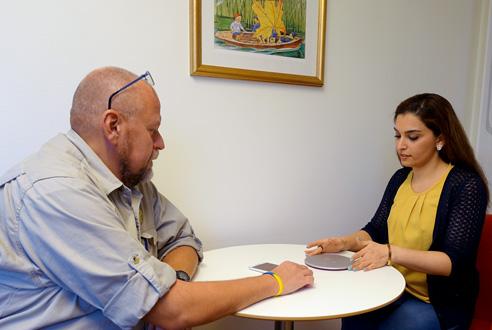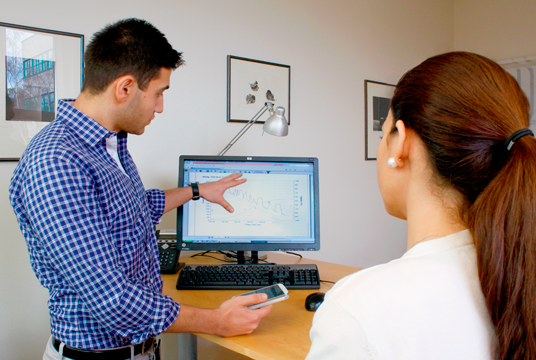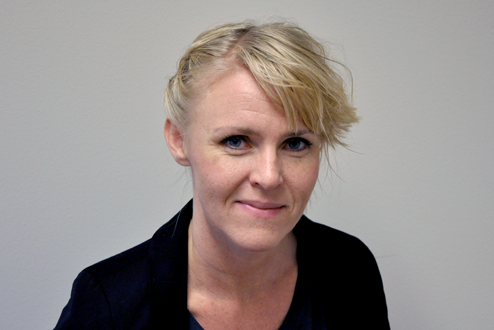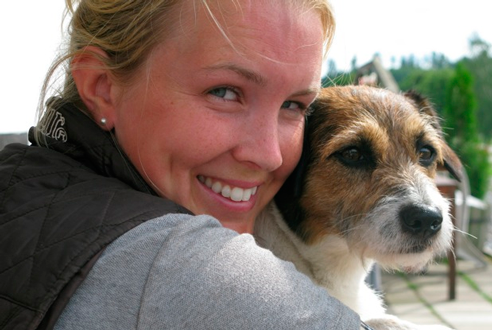This is what you will experience as a patient at the Mandometer Clinics:
New patient visit
When new patients come to us they meet with a doctor or a senior case manager to determine a preliminary diagnosis and decide whether the patient requires admission to our 24 hour inpatient care facility. New patients can visit us via “drop in” or wait to be contacted after referral and self referral have been received by us.
Eating evaluation
At the start of treatment a thorough eating evaluation is carried out by a senior case manager and a doctor. The purpose of the eating evaluation is to determine a diagnosis, the degree and severity, and to rule out any other diagnoses. Remission criteria and criteria for partial remission are explained to the patient and their family. Blood tests are taken and a physical examination is made.

Outpatient care or inpatient care
It is then decided whether admission to our 24-hour inpatient care facility is necessary, or whether outpatient treatment is more appropriate. We have outpatient programs at all our clinics and a 24-hour inpatient facility at our clinic at Sophiahemmet in Stockholm.
Outpatients initially come to the clinic every day or every second day, from breakfast to afternoon snack or as otherwise agreed with their case manager. As the patient makes progress and is able to take on more responsibility, visits to the clinic become progressively less.

Treatment plan
An individualised treatment plan is written for each patient. This includes a detailed meal plan, determining a goal weight, short term and long term goals, and a daily schedule for rest and sleep. As the patient make progress physical activity is gradually reintroduced.
Each patient determines their own short term and long term goals, with guidance from their case manager.

Personal case manager
All patients have a personal case manager that they work with for the duration of treatment. Patients also meet with the same doctor, dietician, teacher and nurse throughout treatment.
For patients under 18 years, treatment is carried out in participation with parents. Our clinicians provide continuous feedback and progress reports to the parents/relatives of patients under 18 years, and to representatives of the patient’s school, as appropriate.
Six week progress reports
Every six weeks the patient’s eating behaviour, psychiatric state, and quality of life measures are assessed and reviewed. The patient’s treatment plan is re-evaluated and adjusted as necessary, and the patient sets new goals with their case manager.
Any antidepressant medications are gradually reduced during the first two months of treatment, and eventually ceased.
What about my other symptoms?
In the same way that starvation causes a low pulse and vomiting can lead to low potassium, abnormal eating behaviour also contributes to anxiety, obsessive thoughts and depression. As eating behaviour normalises and body weight increases these symptoms begin to disappear. There are currently no psychoactive drugs that are effective for treating the psychiatric problems associated with eating disorders.
Diet
There are two risk factors for developing anorexia nervosa; dieting and high level of physical activity. Weight loss usually begins with a restricted vegetable-based diet, which can quickly lead to nutritional deficiency. Those who eat too little need a varied and nutritious diet to get all the nutrients the body needs.
The Mandometer clinics follow the dietary advice provided by the National Food Agency (NFA) of Sweden but do not exclude any patient due to diet. We encourage all patients to eat a varied and nutritious diet. Those who eat a varied diet recover faster and do not risk relapse.











